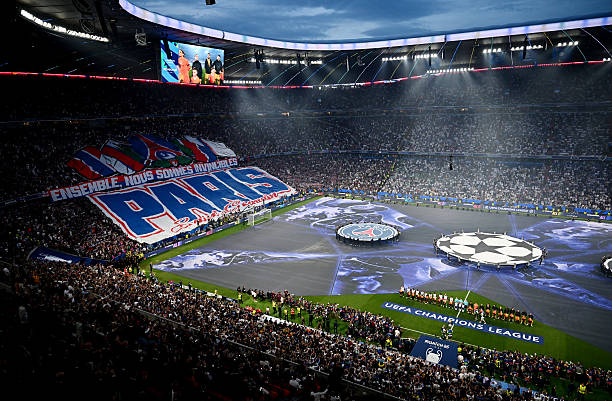This season’s Champions League marked a historic shift in European football, with UEFA implementing the most significant format overhaul since the introduction of the group stage in 1991-92. The question on everyone’s mind as the final whistle blew in Munich, where Paris St-Germain triumphed 5-0 over Inter Milan, was simple: did the new format work?
In the eyes of many, especially PSG, the answer is a resounding yes.
The competition’s expanded 36-team structure introduced a single-league phase where each club played eight different opponents – four at home and four away. Rather than the usual groups of four, all teams competed in one big table, with the top eight advancing directly to the last 16 and those ranked 9th to 24th entering a play-off.
This overhaul brought fresh jeopardy and excitement. Take PSG for example. They stumbled through the early league phase, losing three of their first five games and sitting outside the top 24 until the penultimate matchday. But three consecutive wins – including a crucial victory against Real Sociedad – saw them sneak into 15th place and qualify for the knockout stage via a play-off.
From there, the French champions soared, defeating Brest, Liverpool, Aston Villa, Arsenal, and ultimately Inter Milan to lift their first Champions League trophy. It’s a journey that might never have happened under the old group-based format, where early losses often sealed a team’s fate.
BBC pundit and former defender Nedum Onuoha praised the system for creating compelling narratives and unpredictable matchups. “The biggest change for me was that teams only played each other once in the league stage,” he noted. “It gave underdogs a chance to cause an upset without the fear of an immediate rematch. Aston Villa beating Bayern was a great example.”
Indeed, this new model favoured teams that found form late in the competition. Journalist Nicky Bandini echoed this sentiment, noting that the format allowed PSG to grow into the tournament. “We watched their development in real time,” she said.
The structure also brought more meaningful fixtures. In last season’s traditional group stage, 13 teams had already secured knockout qualification before the final matchday. This time, only two – Liverpool and Barcelona – were guaranteed progression before matchday eight. The final round saw a flurry of goals and shifting permutations, with 64 goals scored in 18 matches.
Yet, critics of the system haven’t vanished. While “Every game counts” was UEFA’s mantra, the reality was nuanced. Nine teams had already been eliminated before the final matchday, and another was all but out. Only two matches were true dead rubbers, but with 24 of the 36 teams qualifying for either the last 16 or the play-off round, the format arguably diluted the stakes of individual results.
Still, fans were treated to high-stakes matchups far earlier than usual. Arsenal’s showdown with Real Madrid in the league phase had the feel of a knockout clash. Declan Rice remarked, “Usually, you find these games in the quarter-finals or semi-finals.”
There were also success stories in the seeding system, with top finishers Barcelona (2nd), Arsenal (3rd), and Inter (4th) all reaching the latter stages. Meanwhile, defending champions Manchester City, who scraped into the play-offs with a final-day win, were eliminated by Real Madrid in a thriller.
In conclusion, the Champions League’s new format brought more variety, uncertainty, and mid-season drama. While not perfect, it has already redefined the rhythm of Europe’s elite competition – and based on PSG’s fairy tale run, the format might just be here to stay.



